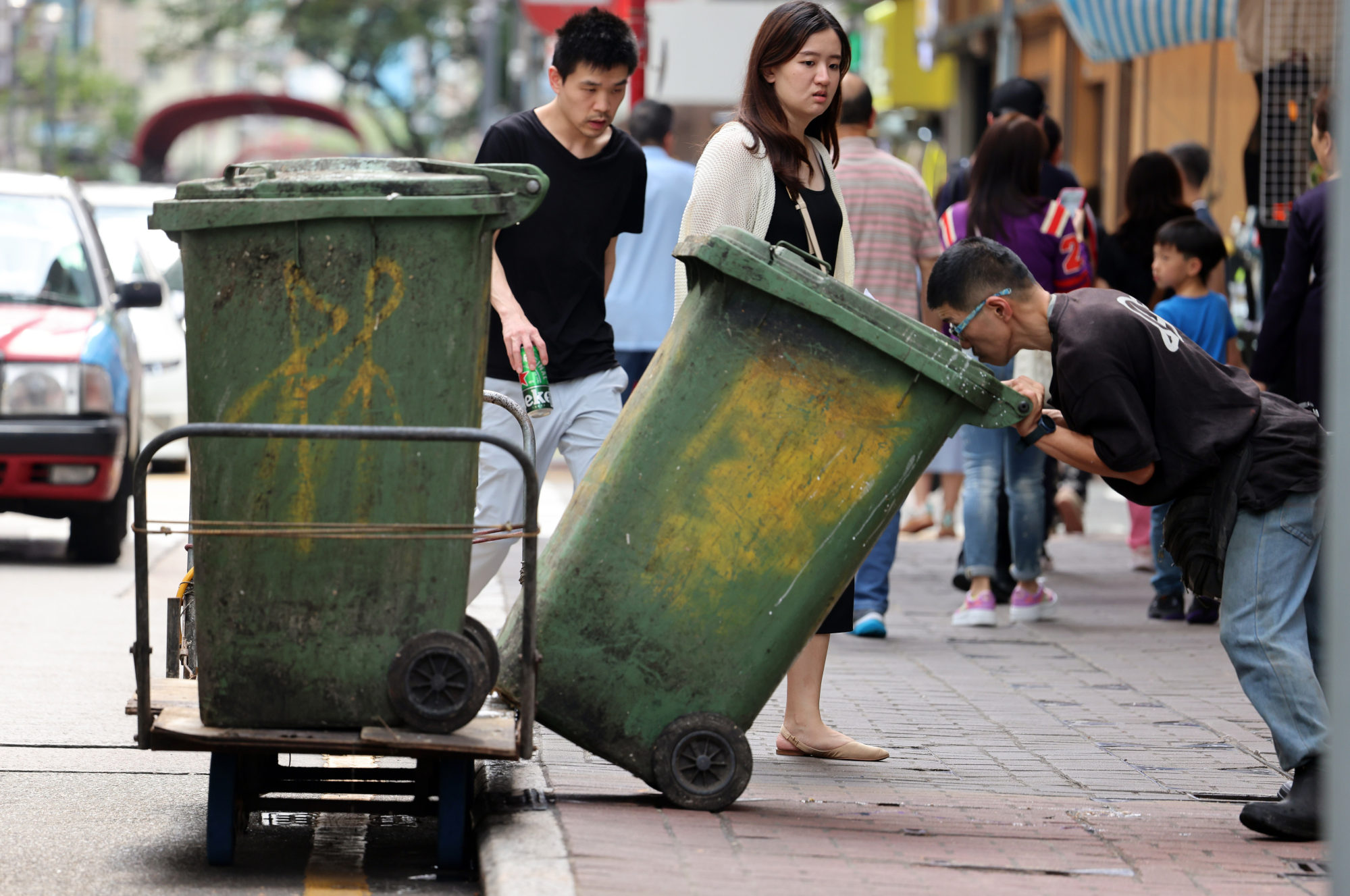
Hong Kong’s new minimum wage formula won’t hurt companies’ bottom line, labour chief says
- Minister Chris Sun says mechanism will not affect city’s competitiveness because composition of formula both protects vulnerable and ensures affordability
- Business sector had expressed concerns of increased financial burden, especially in bad economic times when workers’ wages could not be adjusted downwards
Hong Kong’s labour minister has defended the new formula for adjusting the minimum wage, insisting the rate will not affect companies’ bottom line because employers can afford it.
Secretary for Labour and Welfare Chris Sun Yuk-han said on Saturday the mechanism would not hurt the city’s competitiveness because of the composition of the formula.
“It has taken into account, on the one hand, the need to protect those earning the minimum wage ... and also ensures, at the same time, that the business sector finds it affordable and acceptable,” he told a radio programme.
“It has already struck a balance between different needs and demands. So, we believe it shouldn’t affect the overall competitiveness of our business sector.”
The annual adjustment rate will be the consumer price index (A) plus 20 per cent of the difference between the latest real gross domestic product growth and the trend growth in the past decade, subject to a cap of 1 percentage point.
If the formula produces a negative number, the minimum wage will be frozen.
The index reflects changes in the cost of consumer goods and services generally bought by households. Index (A) relates to about 50 per cent of households, which are in the relatively low expenditure range.
The new mechanism, which bars any cut to the rate, will take effect next year following the approval of the key decision-making Executive Council.
Sun reiterated that the new mechanism recommended by the Minimum Wage Commission had weighed the interests of bosses and workers, adding that at present only about 0.6 per cent of the workforce, about 17,000 workers, were receiving the basic rate.

The business sector had expressed concerns that the move might increase their financial burden, especially in bad economic times when workers’ wages could not be adjusted downwards.
“There may be a ripple effect, but it won’t have a big impact on the business sector as the affected vulnerable group only accounts for a small number. We hope that the new formula can offer more protection for them in terms of their basic salary,” he said.
“The business sector can afford to provide a mechanism that excludes any pay cut to the rate … Hong Kong is a wealthy society.
“We should provide more help for this group of people at the lowest rung of the ladder to safeguard their basic livelihoods in bad times while allowing them to share the economic fruits in good times.”
Exco also accepted a proposal by the commission to review the minimum wage annually, rather than once every two years.
The changes made to the review are the first in 13 years since Hong Kong introduced the statutory minimum wage in 2011 to provide protection for low-paid workers.
The new mechanism is expected to take effect next year, when the rate is due for review. The review will become an annual exercise in 2026 and be assessed five or 10 years after implementation.
Sun pointed out that the cap of 1 percentage point and the 20 per cent of the GDP difference had taken into account the employers’ contribution to the economy which ensured the rate would not be unaffordable to bosses.
On May 1 last year, the minimum wage was raised to HK$40 (US$5) an hour, an increase of about 6.7 per cent.

